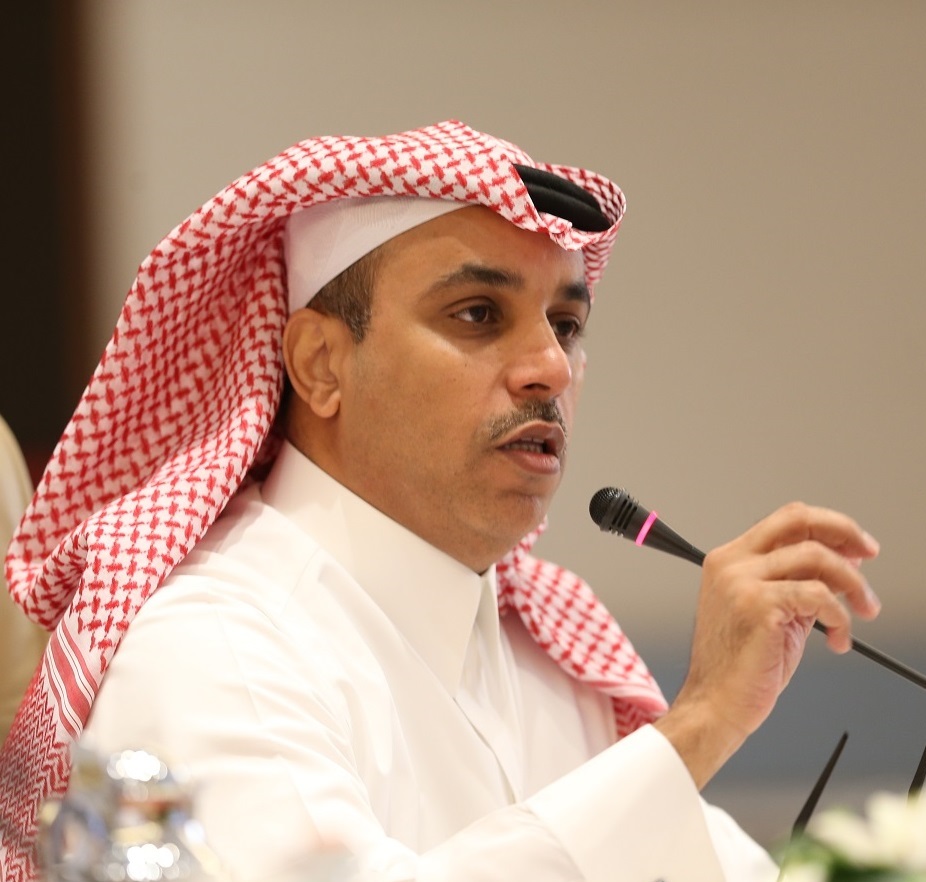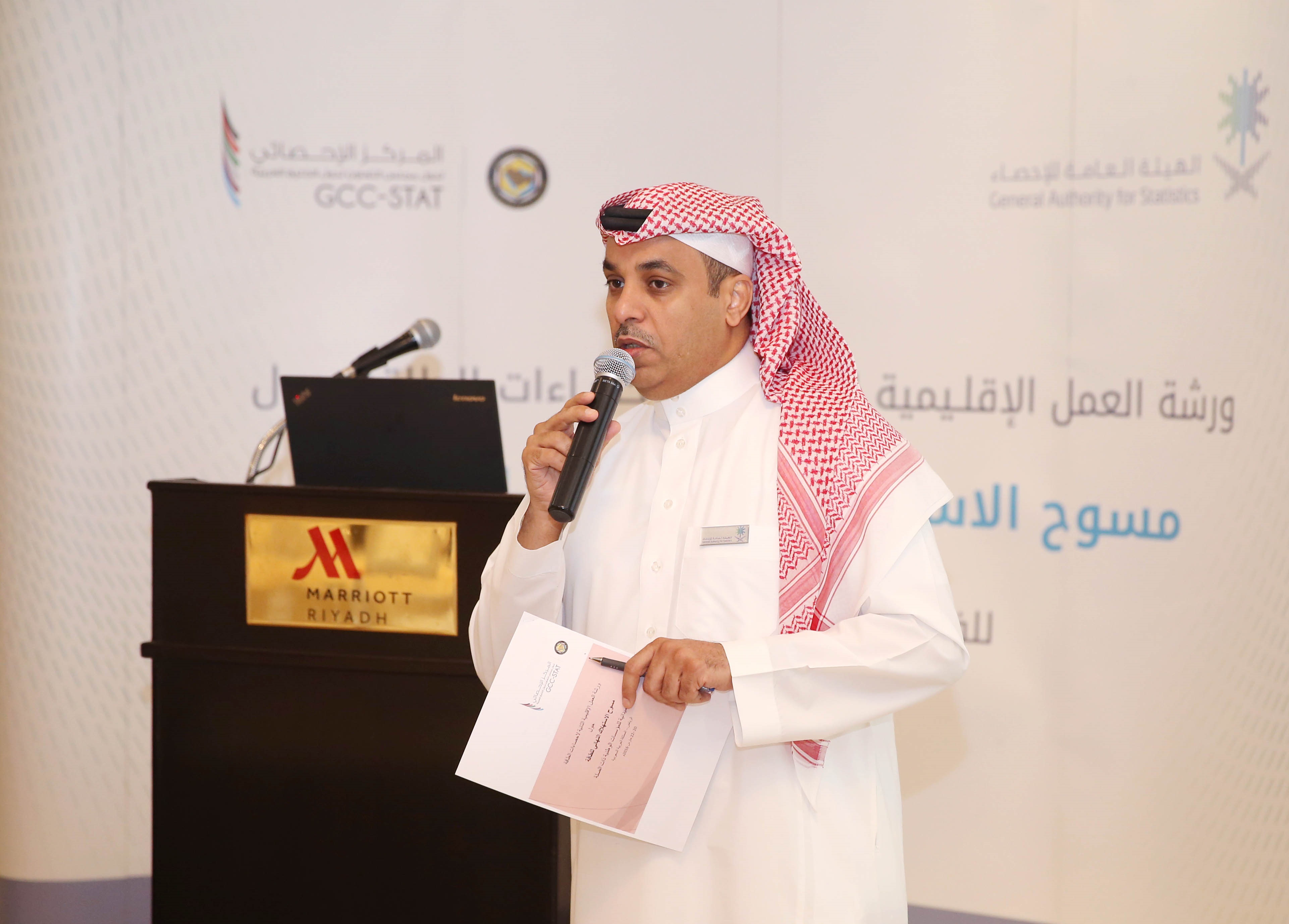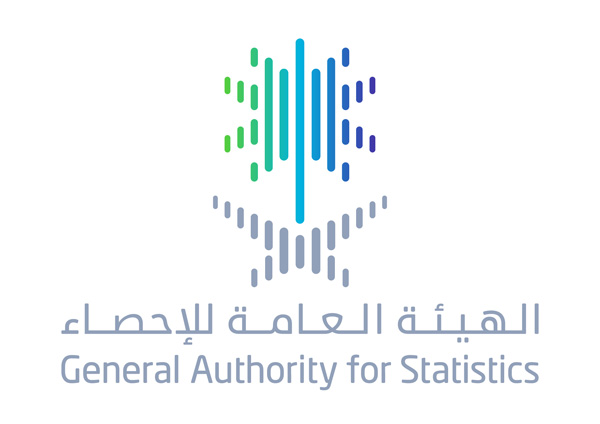
الهيئة العامة للإحصاء تبدأ العمل بالهيكلة الجديدة
New (Statistical, Creative, and Awareness) Departments to Cope with the Requirements of the New Saudi Vision and National Transformation
GaStat Starts Working with the New Structure
The General Authority for Statistics starts working with the new organizational structure. A general administration for natural resources and knowledge statistics has been created. It works beside the general administration of economic statistics, the general administration of social statistics, field statistics departments, methodologies departments, creativity departments, and awareness departments.
GaStat president, Dr. Fahad bin Sulaiman Al-Tukhaifi said that working with this new organizational structure is a response to the 2030 Saudi vision and 2020 national transformation program. The next phase needs integrated efforts from the statistical sector, so the sector must work in a distinct way as it is the only official sector that is responsible for the production of data, information, and statistics, which reflect the developments in Saudi Arabia.
Dr. Fahad clarified that the new structure, which has been authorized since the first day of this Muhharam, is a way that guarantees achieving the authority's strategic goals that are represented in enhancing the efficiency and quality of statistical services and products. Moreover, it makes these services more comprehensive and beneficial. It also helps to raise the satisfaction level of all clients and beneficiaries, gives the authority a positive reputation in the society, promotes the statistical sector level, and builds a strong authority.
Al-Tukhaifi added that this new structure is based on the statistical development' national strategy aspects, covering five aspects that guarantee the efficiency of the statistical sector in Saudi Arabia. The first aspect is using the statistical data and information, which aims at improving the use of statistical data and information in Saudi Arabia. This would fulfill all the users' needs by providing easy and on time statistical data and information. There is also the aspect of statistical data and information production, which aims at enhancing the field operations such as censuses, surveys, and researches. Furthermore, it enhances using the most recent standards and classifications in collecting, analyzing, and publishing data. The third aspect is the recent technologies. It aims at using the most recent technologies in all the phases of the statistical and administrative work. It provides a high quality IT infrastructure. The fourth aspect is the communication and awareness, which aims at enhancing the statistical knowledge in society through education and awareness. It introduces those who work in the statistical sector with the concept of communication. The fifth aspect is about governance. Through this aspect, the authority is trying to set the principals that govern the statistical sector. This enhance the idea of "results based management" . It continuously develops the human resources and tries to recruit people with high capabilities.
As for the main components of the authority new structure, Dr.Fahad stated that the organizational structure has been made by a teamwork from the authority and some experts outside the authority. This structure was made to develop and improve the statistical work. It also positively collaborate in activating the strategic transformation through which the Saudi statistical work is going. It enhances the role of the entity that supervises and organizes the statistical work by transforming it into an independent authority that has a featured personality and administrative and financial independence. The teamwork worked on determining the tasks, duties, and regulations according to certified instructions that guarantee founding an effective and comprehensive statistical organization. This new organization focused more on the clients and raising the products quality, considering them the main dimensions of work. The new statistical organization has been built in a way that prevent duality in work and responsibilities. It also intends to make the organizational structure compatible with the authority’s strategy by collecting the harmonized activities in one sectors and administrative units to implement unified tasks. In this structure, Many administrations and departments have been founded to achieve the strategic goals.
Regarding the main components of the new organizational structure, the authority president revealed that the statistical and administrative work has been distributed among three main sectors headed by the vice presidents. These sectors include the statistical works sector, which contains general administrations of economic statistics, social statistics, and natural resources and knowledge statistics (new one). In addition to the independency of the statistical field works with a general administration of operations. There is also an administration specialized in methodologies.
As for the second sector, the statistical creativity and customer service sector, it is a totally new sector. However, the third sector represents IT and supporting services, as they are the main infrastructure of the authority’s statistical and administrative work. Moreover, the new structure includes a general administration of media and statistical awareness, which manages all the internal and external activities aiming at raising statistical awareness. It also includes a general administration of projects and strategic planning which implements and prepares the authority’s strategies and plans. Furthermore, there is a general administration of support and institutional excellence that manage, prepare, and update all the policies, operations, and procedures. The later also supervises the programs of total quality department and knowledge department.

د. التخيفي: نهدف إلى توحيد معايير منتجي البيانات لخدمة مواطني " الخليج "
GCC "Energy Statistics" in Riyadh
Dr. Altekhaifi: We aim to unify Data producers' Standards to Serve "GCC" Citizens
Media center- Riyadh
The Chairman of the GCC Statistical center, the Chairman of the General Authority for Statistics in the Kingdom of Saudi Arabia, Dr. Fahad Sulaiman Altekhaifi expressed his thanks and gratitude towards the leaders of the GCC countries for supporting all programs and activities of the "GCC Statistical centre", as a result of their role in supporting all decisions related to the development of GCC nations. Dr. Altekhaifi asserted that the results of the Energy Statistics' Second Regional workshop about the final consumption of energy surveys held in Riyadh city meet the needs of the national and regional policy makers of the energy sector. It will also support everything that would develop the energy sector in GCC countries. Dr. Altekhaifi also added that through this workshop, the GCC statistical centre seeks to strengthen the cooperation between energy statistics producers, and unify the efforts in the used technical standards. In addition, it seeks to implement International standards by all data producers in member countries.
Dr. Altekhaifi revealed that the most important role of data producers in this meeting is to reinforce the understanding of the international standards related to energy statistics in the statistics system. In addition, it aims to explain the links between energy data groups and discuss the user's needs by enhancing the data and its publishing. Moreover, it aims to unify the efforts to raise the awareness about the methodologies needed in preparing energy statistic in the region. Furthermore, it aims to deepen the participants' understanding of international standards that support energy statistics. Also it clarifies the importance of the final consumption surveys' system.
In this workshop the participants reviews the national experiences of the member countries and the importance of the energy final consumption surveys. In addition, the participants visits several energy sector related entities in the kingdom of Saudi Arabia. This workshop continues until 22 March, 2016.
It is worth mentioning that The GCC Statistical Centre was established in June 2011 to provide a common official pool of statistics and data for the member states of the GCC. It was also established to support the statistical work of national statistical centers and planning entities in GCC countries.. The Charter was officially endorsed in December 2012 by the GCC Supreme Council (comprised of heads of member states: United Arab Emirates, Kingdom of Bahrain, Kingdom of Saudi Arabia, Sultanate of Oman, State of Qatar and State of Kuwait).

" الإحصاء " : دقَّة المعلومات التي يُقدِمُها المواطن ركيزة أساسية لقرارات ومشاريع حكومية
Updating the general framework of population and housing paves the way for a new labor force survey
"statistics" the accurate information provided by citizens is essential for governmental resolutions and projects
Media center- Riyadh
Supporting the resolutions of nationalization and reduction of "unemployment", the General Authority for Statistics ( GaStat ) stresses the importance of information accuracy provided by citizens in the activities of labor force surveys as these information are essential for the development resolutions and can determine many national programs and projects.
During his participation in the first Saudi conference for job creation held in Riyadh, GaStat chairman, dr. Fahad Altukhaifi stated that the citizen is considered the base for development building , that is through the information that he/she provides during the process of conducting surveys done by GaStat crew.
As for the survey of labor force, dr. Fahad confirmed that it is one of the most important household surveys conducted by GaStat . it provides fundamental data about the labor force and its characteristics, which helps in setting the plans to develop the labor market in Saudi Arabia, analyzing and evaluating the economic policies, and helping the decision makers in setting the labor market policies with all the related issues such as unemployment and training. The labor force survey results are very important too as they collaborate in building a data base for the Saudi labor market in order to cope with the interest and anticipations of the labor force statistics nationally, regionally, and internationally. The results also support all tendencies and efforts exerted by the public and private sectors in the process of nationalization. Moreover, they give an opportunity to collaborate in building a base for these information that can be beneficial in preparing and planning the future economic and social development programs. The authority conducts this survey every six months , it intends to conduct it every three months in 2016 according to the latest international standards and methodologies.
The authority chairman added that providing detailed data about the national and non-national labor force ,classified by their economic, social, and demographic characteristics, is one of the main objectives of the survey, in addition to its role in measuring the averages of economic collaboration, economic support, and employment and unemployment by many variables. It should also provide data about some training programs for job seekers, and be familiar with the vocational structure and the economic activity of employed people by a number of variables and the average of their salaries.
Dr. Altukhaifi thanked all governmental entities who work with GaStat . he assured that the authority is working with all governmental entities which are related to the Saudi labor market ( ministry of labor, human resources development fund, general organization for social insurance, ministry of civil services, and the national information center in the ministry of interior) in order to develop the survey on one hand and benefit from its results on the other hand. The authority is working with them also to unify the efforts so that they can get accurate data of the most important indicators in the Saudi labor market.
It is worth mentioning that the labor force survey results depend on the data and information of (33.500) households, distributed among all Saudi administrative regions, as a sample that represents the society. The households are chosen according to international and scientific fundamentals applicable in the population and housing censuses all over the world . GaStat has started preparing for the next survey after updating the general framework of population and housing which depends on the 1431 framework as it is considered the main source from which samples are collected to conduct future researches.

د. التخيفي : الإحصاء يدعم قرارات من شأنها الحد من ظاهرة ارتفاع الأسعار
The GCC Statistical Centre Launches the General Consumer Prices Index
In pursuit of the Gulf Cooperation Council (GCC) countries to find a number of coordinating and corrective procedural policies that will help in reducing the phenomenon of rising prices in the GCC countries, the GCC Statistical Centre launched the project of "GCC Consumer prices index", and "the statistical centre data portal" in Muscat, Oman, under the auspices of His Excellency Sheikh Khalid Almarhoon, the Minister of Civil services in Oman.
The chairman of the General Authority for statistics in Saudi Arabia, the chairman of the GCC Statistical center in its current cycle, Dr. Fahad bin Sulaiman Altekhaifi, asserted that the index number is considered to be an important tool to support decision makers in all private and public sector entities in GCC countries to prepare coordinating and corrective procedural policies that contributes in reducing the phenomenon of rising prices in the GCC countries. It is also considered to be an economic phenomenon with social dimensions. In addition, the new indicator will provide a unified prices statics data base with all its details, which will help the beneficiaries to use the information in various related fields.
Talking about the statistical centre data portal, Dr. Altekhaifi added that the goal of inaugurating the portal is to enable the observation of statistical data and documenting achieved advancements in the indicators of the GCC countries in different economic, social, and energy sectors. In addition, its goal is to provide information services that contributes in raising statistical awareness.
On the other hand, in the speech of Dr. Altekhaifi, he asserted on developing and supporting the statistical and institutional abilities, to keep pace with the statistical requirements on the GCC countries' level and internationally. He also asserted that this is one of the most important common goals on the strategic level of the GCC countries. He also added that the authorities and Gulf statistical centers are seeking to continuously reinforce and enhance the quality and quantity of statistical services, and develop, expand and market the statistical publishing. Also, it seeks to show the GCC countries' region as a unified social and economic region through unifying the national statistical strategies in the GCC countries with the combined statistical programs needs according to the best international practices. Altekhaifi also explained that everyone is working on building statistical culture and raising statistical awareness, in addition to reinforcing the actual and correct use of statistical data and information in decision making and policy making in GCC countries.
Altekhaifi also revealed about ten of the most important projects that are considered to be the top statistical priority determined by the GCC statistical centre, which are: the national accounts, environment and energy, financial executive statistics, balance of payments, development, progress and sustainability indicators, short term prices and indicators, unified registered population census (year of 2020), foreign trade, administrative data, job market, and the statistical standards, categories, methodologies, and data quality.
It is worth mentioning that the GCC statistical centre was established in September 2011, and its organization was approved in 2012 by the supreme council of the GCC to be the official source of statistical information and data related to GCC countries. It was also established to reinforce statistical and informational work of the national statistical centers and planning in GCC.
